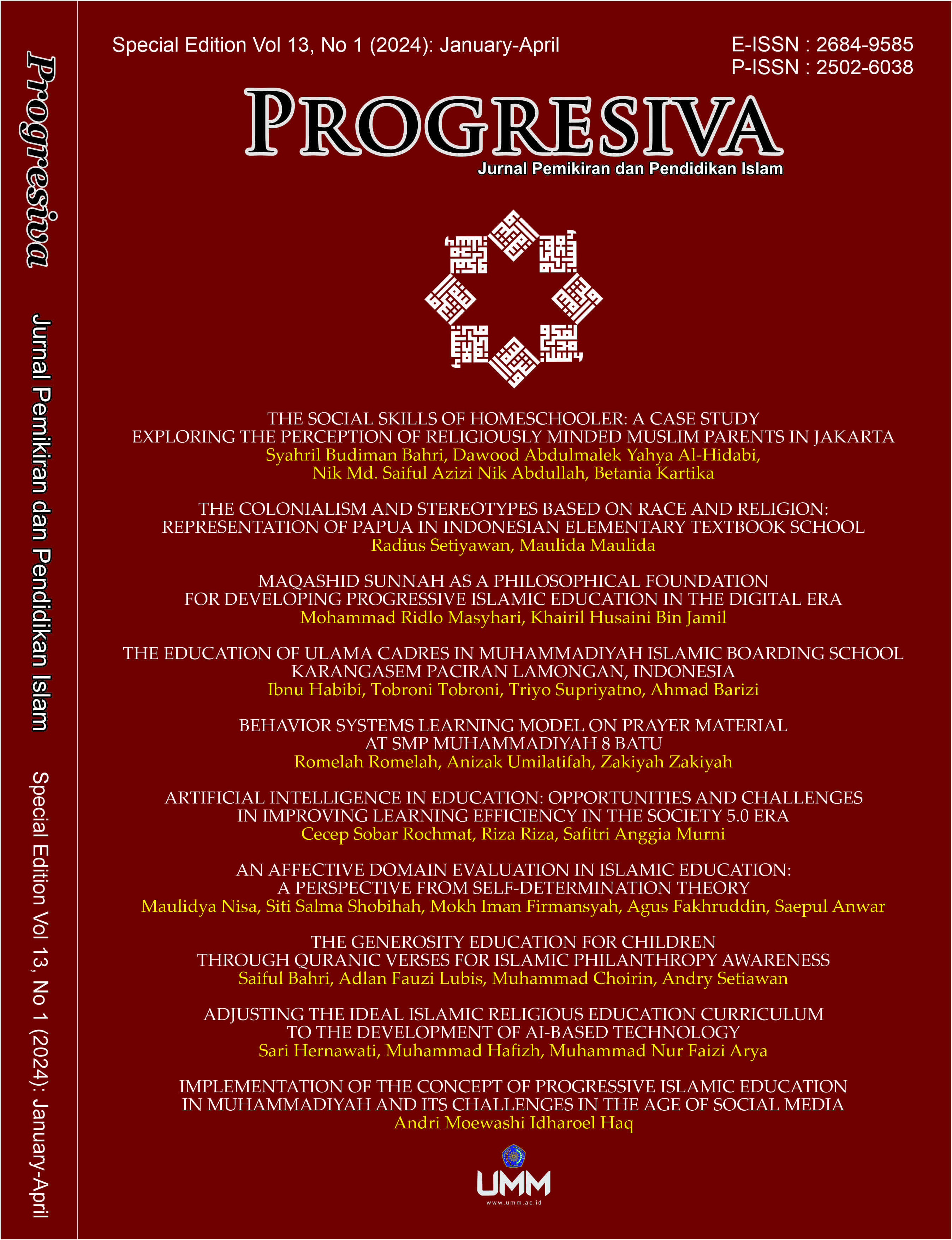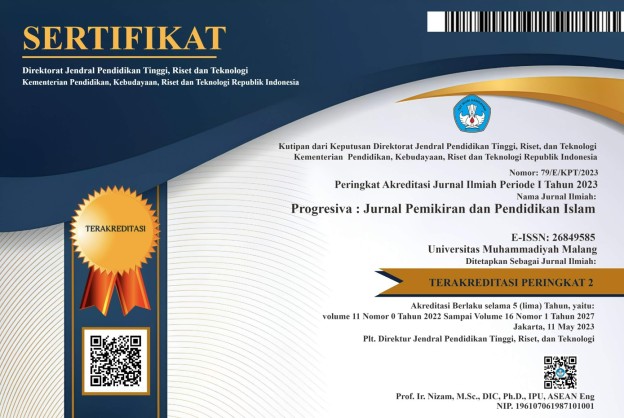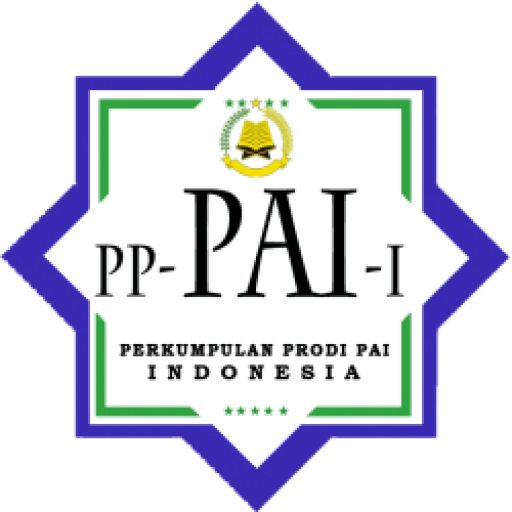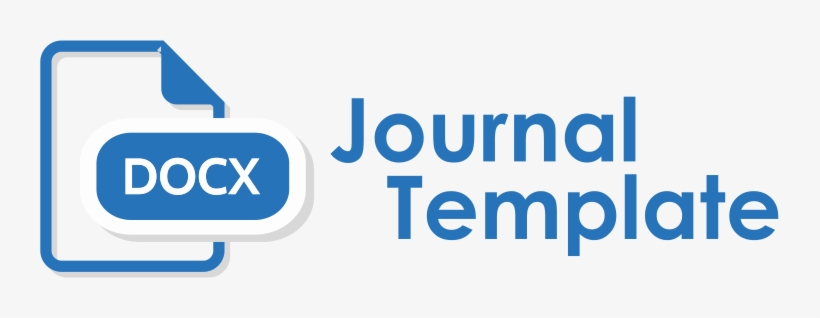Artificial Intelligence in Education: Opportunities and Challenges in Improving Learning Efficiency in the Society 5.0 Era
DOI:
https://doi.org/10.22219/progresiva.v13i01.30007Keywords:
Artificial Intelleegence, Learning Efficiency , Society 5.0 EraAbstract
The world of education in Indonesia is undergoing a transformation and is ready to welcome the Society 5.0 era. So it offers opportunities and challenges for educators in every educational unit. The purpose of this research is to improve learning efficiency by using AIED-based learning media in the Society 5.0 era. The method used in this research is a qualitative research method with library research data collection techniques. Qualitative analysis was conducted by selecting and examining the latest pedagogical development concepts in the era of society 5.0 and research results from journals in the last five years. If teachers have understood the opportunities and challenges in improving learning efficiency with AIED in the era of Society 5.0. If teachers have understood the opportunities and challenges in improving learning efficiency with AIED in the Society 5.0 era, the world of education will be more developed so that it can produce superior future generations. Teachers must continue to hone their skills regarding general science and technology.
Downloads
References
Abidah, A., Aklima, A., & Razak, A. (2022). Tantangan Guru Sekolah Dasar dalam Menghadapi Era Society 5.0. Jurnal Ilmiah Profesi Pendidikan, 7(2c), 769–776. https://doi.org/10.29303/jipp.v7i2c.498
Asrial, A., Syahrial, S., Kurniawan, D. A., & Septiasari, R. (2019). Hubungan Kompetensi Pedagogik Dengan Kompetensi IPA Mahasiswa Pendidikan Guru Sekolah Dasar [Relationship of Pedagogical Competence and Science Competency of Elementary School Teacher Education]. 8(2). https://doi.org/0.21070/pedagogia.v8i2.1872
Baharizqi, S. L., Muhtar, T., Herlambang, Y. T., & Nur Fahrozy, F. P. (2023). Kompetensi Pedagogik Di Era Society 5.0: Sebuah Tinjauan Dalam Perspektif Pedagogik Kritis. ELEMENTARY SCHOOL JOURNAL PGSD FIP UNIMED, 13(2), 259. https://doi.org/10.24114/esjpgsd.v13i2.46286
Chaudhry, M. A., & Kazim, E. (2022). Artificial Intelligence in Education (AIEd): A high-level academic and industry note 2021. AI and Ethics, 2(1), 157–165. https://doi.org/10.1007/s43681-021-00074-z
Danny, M. (2022). Dampak Kecerdasan Buatan Bagi Pendidikan. AdI Bisnis Digital Interdisiplin(ABDI Jurnal), 3(2). https://doi.org/10.34306/abdi.v3i2.792
Diplan, D. (2019). Tantangan Pendidik di Era Digital. Lentera: Jurnal Pendidikan, 14(2), 41–47. https://doi.org/10.33654/jpl.v14i2.888
Fadli, M. R. (2021). Memahami desain metode penelitian kualitatif. 21(1).
Ghufron, M. (2018). Revolusi Industri 4.0: Tantangan, Peluang, Dan Solusi Bagi Dunia Pendidikan. Seminar Nasional Dan Diskusi Panel Multidisiplin Hasil Penelitian Dan Pengabdian Kepada Masyarakat, 1(1), 37–332.
Khoirudin, A., Baidhawy, Z., & Mohd Nor, M. R. (2020). EXPLORING MUHAMMADIYAH’S HISTORICAL CIVILIZATIONAL DIMENSION OF EDUCATION IN INDONESIA: PHILOSOPHY AND ETHOS OF HUMANITARIAN AND COSMOPOLITAN. Journal of Al-Tamaddun, 15. https://doi.org/10.22452/JAT.vol15no1.13
Lalu Gede Muhammad Zainuddin Atsani. (2020). TRANSFORMASI MEDIA PEMBELAJARAN PADA MASA PANDEMI COVID-19. Al-Hikmah : Jurnal Studi Islam, 1(1), 82–93. http://ejournal.kopertais4.or.id/sasambo/index.php/alhikmah/article/view/3905
Lestari, F. A., Kurniawan, S., & Putri, V. A. R. (2023). PEDAGOGI DALAM MENGEMBANGKAN DIRI PESERTA DIDIK MELALUI OLAHRAGA. Jurnal Ilmiah Pendidikan Citra Bakti, 10(3), Article 3. https://doi.org/10.38048/jipcb.v10i3.1436
Mertayasa, I., & Indraningsih, G. (2020). Effective Learning Approach In New Normal Era. (hlm. 99–175). Jayapangus Press Books. http://jayapanguspress.penerbit.org/index.php/JPB/article/download/472/467
Naim, N., Aziz, A., & Teguh, T. (2022). Integration of Madrasah diniyah learning systems for strengthening religious moderation in Indonesian universities. International Journal of Evaluation and Research in Education (IJERE), 11(1), 108. https://doi.org/10.11591/ijere.v11i1.22210
Rachayu, I., & Bachri, B. S. (2023). Evaluasi Program Kompentensi Pedagogi sebagai Calon Guru Terus Bergerak, Tergerak, dan Menggerakkan (TTM) Era Kurikulum Merdeka melalui Pengalaman Lapangan. 8(3). https://doi.org/10.24815/jimps.v8i3.26310
Rahayu. (t.t.). Rachayu, I., & Bachri, B. S. (2023). Evaluasi Program Kompentensi Pedagogi sebagai Calon Guru Terus Bergerak, Tergerak, dan Menggerakkan (TTM) Era Kurikulum Merdeka melalui Pengalaman Lapangan. 8(3). Https://doi.org/10.24815/jimps.v8i3.26310.
Rochmat, C. S., Sholihah, S. R., & Qonita, S. N. (2022). Forming Critical Character With Higher Order Thinking Skill (HOTS) Based Learning Assessment in Islamic Religious Education Subjects. Educan : Jurnal Pendidikan Islam, 6(2), Article 2. https://doi.org/10.21111/educan.v6i2.8131
Rochmat, C. S., Yoranita, A. S. P., & Putri, H. A. (2022). Islamic Boarding School Educational Values in Efforts to Realize Student Life Skills at University of Darussalam Gontor. International Journal of Educational Qualitative Quantitative Research, 1(2), Article 2. https://doi.org/10.58418/ijeqqr.v1i2.18
Sobarningsih, I., & Muhtar, T. (2022). KOMPETENSI PEDAGOGIK GURU ABAD KE-21: SEBUAH TINJAUAN PERAN GURU PADA GENERASI Z. 7(5). https://doi.org/10.36418/syntax-literate.v7i5.6905
Sugiarto & Farid. (2023). Literasi Digital Sebagai Jalan Penguatan Pendidikan Karakter Di Era Society 5.0. Cetta : Jurnal Ilmu Pendidikan, 6(3). https://doi.org/10.37329/cetta.v6i3.2603
Suntiah, R. (2021). Students’ Critical Thinking Skills in The Reflective Class of Islamic Cultural History. Jurnal Pendidikan Islam, 7(2), 195–204. https://doi.org/10.15575/jpi.v7i2.15060
Thoyib, M., Subandowo, M., & Wiyarno, Y. (2021). Penerapan E-Learning dengan Analisis Pengetahuan Awal Terhadap Prestasi Belajar Bahasa Inggris Siswa SMK. Edcomtech: Jurnal Kajian Teknologi Pendidikan, 6(1), Article 1. https://doi.org/10.17977/um039v6i12021p013
Tumurang, H. J., & Chandra, F. H. (2023). TEKNOLOGI DAN PEDAGOGI: KAHOOT! DAN QUIZZIZ SEBAGAI MEDIA PEMBELAJARAN DI SEKOLAH DASAR. Prosiding Seminar Nasional Pendidikan Dasar Pascasarjana Universitas Negeri Jakarta (In Press), 2(1). https://journal.unj.ac.id/unj/index.php/semnas-ps/article/view/33340
Wira Rahman, A. (2023). Digitalisasi Pembelajaran Di Sekolah. Journal on Education, 05(02). http://jonedu.org/index.php/joe
Downloads
Published
How to Cite
Issue
Section
License
Copyright (c) 2024 Cecep Sobar Rochmat, Riza Riza, Safitri Anggia Murni

This work is licensed under a Creative Commons Attribution-ShareAlike 4.0 International License.


















